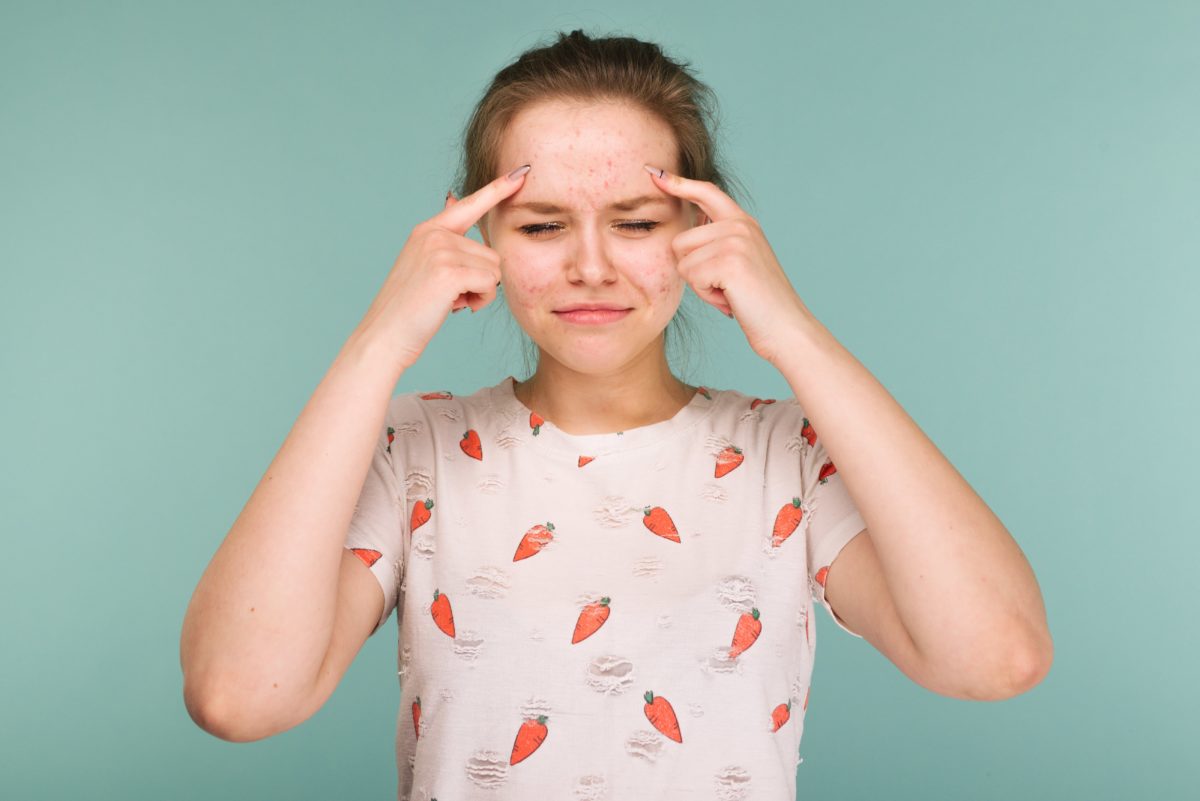At some point in our lives, most of us suffer from spots and blackheads. Some will find with time these disappear, but those suffering with acne find they are stuck in a long lasting cycle that can damage their skin.

We often associate acne with teenage years, but acne in adulthood is not uncommon. One in five women between the ages of 25 and 40 suffer from adult acne, affecting more women than men. Although adult acne may feel like an entirely different situation from the acne you experienced as a teenager, it is quite similar. All acne is caused by the same factors which are mainly oily skin, bacteria and blocked follicles.
Acne is easily recognised by the appearance of these red or pus-filled spots and by their distribution on the face, neck, chest or back. Adult acne is most likely to appear on the lower face and is sometimes confused with rosacea.
Common acne treatment and lifestyle rumours
Is laser treatment for acne effective?
- There have been developments in the use of light and laser therapy for inflammatory acne. These forms of treatment have yet to be fully evaluated and are generally ineffective in the treatment of severe inflammatory acne.
- Laser resurfacing of facial skin to reduce post-acne scarring is, however, an established technique requiring the skills of an experienced laser surgeon.
If I change my diet, my acne will get better
- There is some research on the effect of diet and acne, but there is no hard evidence that specific foods, such as chocolate or greasy foods can cause or worsen acne.
- There is stronger evidence to suggest that low zinc levels may play a role, but zinc deficiency is extremely unlikely in the majority of acne patients.
About the popular Acne Treatments
Over-the-counter Products
Some acne can be treated by over-the-counter products, but many people find these are ineffective and can worsen their skin condition.
Natural Sunlight
Sunlight can also improve your acne temporally, but is not a cure, or a long lasting option.
Contraception
Women can use forms of contraception to control their acne. Again, this is not a cure, as acne is likely to return once the contraception is stopped.
Antibiotics
A small percentage of people can use antibiotics to control their acne. Antibiotics are usually prescribed to teenagers as a form of acne management until they have grown out of the condition.
The recommended treatment for acne are oral retinoids.
These are tablets which include a high dose of vitamin A, and after a course of acne treatment, ranging from 3-6 months, for most people, can cure acne for good. Due to the type of drug, expert monitoring is required by a dermatologist.
To reduce the possibility of scarring, acne is best treated early with the most appropriate regime for your circumstances, which can be attained through a dermatologist.


